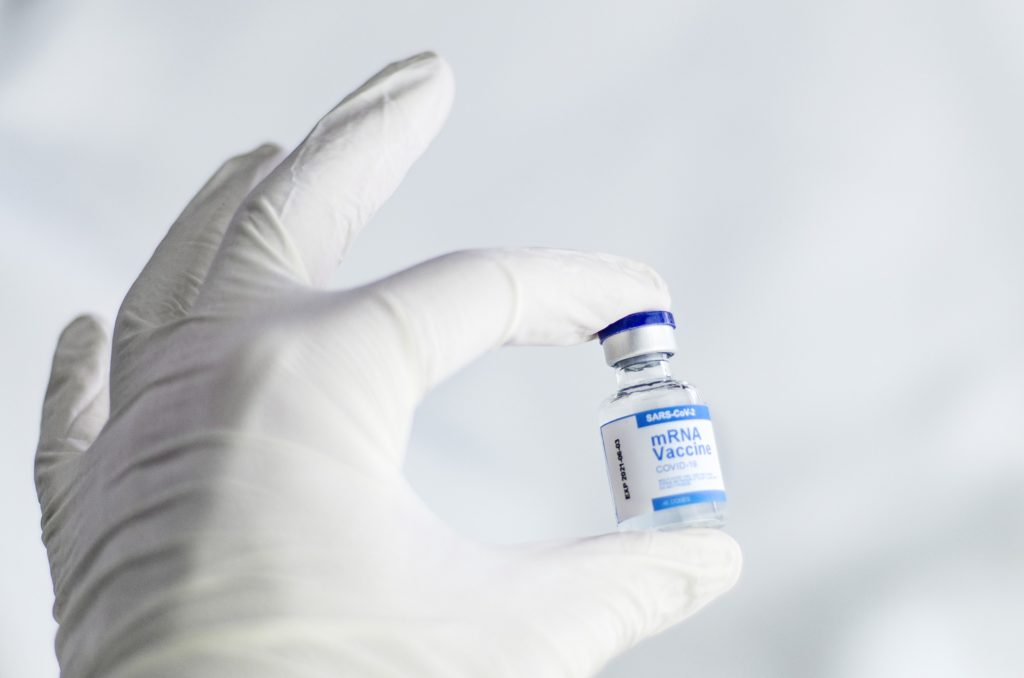As Omicron continues to be closely watched around the world with more information awaited from researchers, COVID-19 vaccine makers Pfizer and Moderna announced they’re getting to work on a booster for the newest COVID-19 variant of concern (VOC). While Pfizer said it will have an Omicron-targeting vaccine ready in 100 days, Moderna took it a step further saying that a variant booster is needed because the current COVID-19 vaccines probably won’t work well against it.
On Tuesday, Moderna chief executive officer Stéphane Bancel said it is unlikely that the COVID-19 vaccines will be effective against Omicron.
“There is no world, I think, where (the effectiveness) is the same level…we had with Delta,” Bancel told the Financial Times in an interview.
After the remarks raised public concern and caused global stock markets to nosedive, Moderna president Stephen Hoge appeared on CNN yesterday to clarify the comments. Dr. Hoge admitted that, “some of the word choices may not have been optimal.”
However, he said, “it seems likely that the Omicron variant will make a dent in [all] vaccine efforts.” He explained the company believes this will be the case based on the experience with the Delta variant, which have led to reductions in vaccine efficacy.
Related: Thermo Fisher, Qiagen and Others Assure Their COVID-19 PCR Tests Detect Omicron
Dr. Hoge also said they don’t know how big the dent in vaccine efficacy will be, but hope that boosters push the efficacy higher.
“The optimist in me is that maybe they find out that as they generate more real-world data, vaccines hold up well and that it’s more like Delta. And it’s a situation where we already have the tools that we need to fight,” Dr. Hoge said.
A point of optimism that is more concrete, however, is that Omicron can be detected with the current COVID-19 tests — both PCR-based and antigen — according to test makers and the World Health Organization (WHO).
The Omicron variant continues to be detected in a growing number of countries around the world. Also, new evidence shows that Omicron was present in Europe at least 11 days before it was first identified in South Africa. It might even have been spreading across Europe for two or three months prior. This brings to question the travel bans that some feel were hastily put in place against Southern African countries. South Africa has among the most sophisticated infectious diseases monitoring and research programs in the world because it routinely contends with other infectious diseases on the continent. As such, the country has led in identifying variants and in trials for COVID-19 vaccines.
In addition to vaccines, Pfizer said it’s confident that its antiviral Paxlovid will be another useful tool in the fight against COVID-19, including variants like Omicron. The company is anticipating authorization for the drug from the US Food and Drug Administration (FDA). The pill was found to reduce hospitalization and death by almost 90 percent in trials.
And now the company says it predicts annual COVID-19 shots could be the new reality “for many years to come.”
Pfizer CEO Albert Bourla made the comment in a BBC interview in which he addressed the rumor that his wife had died from the vaccine.
Dr. Bourla said vaccines had helped save millions of lives during the pandemic, and without them, the “fundamental structure of our society would be threatened.”
When questioned about the $35 billion that Pfizer is projected to earn from sales of its COVID-19 vaccine this year, Bourla was unapologetic in saying that the vaccines are saving lives and that profits provide incentive for scientific innovation.
Pfizer will have delivered 3 billion doses of its mRNA vaccine by the end of the year and has plans to produce 4 billion next year.
Dr. Bourla said the initial race for vaccine doses seen this year won’t be a problem in 2022 as countries will have access to “as many doses as they need” next year.
While Pfizer and Moderna can be commended for quickly stepping up to address the new SARS-CoV-2 variant with their commitments to making new versions of their COVID-19 vaccines against Omicron, some of their comments can be seen as premature, largely speculative and sensationalist given that much remains unknown about the new variant. This makes any assessment of vaccine efficacy against Omicron premature.
While the overall concern of waning antibody levels — although the immune system is complex and tiered in which T cells play a significant role in long-term immunity — has prompted the authorization of boosters from the FDA, it isn’t possible to predict whether Omicron will be similar to, worse or better than other variants including Delta. In an update on Omicron earlier this week, the WHO stated that the current vaccines continue to be effective against severe disease and death, something that should certainly not be undermined.
Some of the comments from Moderna and Pfizer this week about the effectiveness of the current COVID-19 vaccines against Omicron were quite obviously premature. Commenting on the science of the vaccines and Omicron without any data is unscientific. It also threatens the deteriorating trust in science that we’ve often seen during this pandemic, and the distrust that many already have with big pharma. Companies like Moderna and Pfizer must work on their science communications because statements that seemingly push for boosters and other variant versions of vaccines without any data or due diligence won’t be received well, making for bad optics. We must win trust in science by letting the science speak.












Join or login to leave a comment
JOIN LOGIN